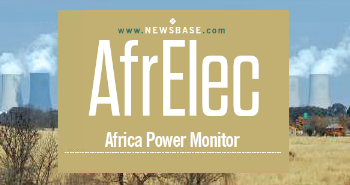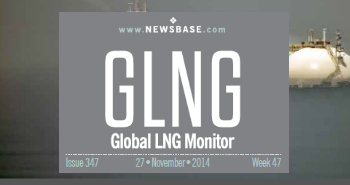TotalEnergies CEO hopes to resume work on $20bn Mozambique LNG project this year
Patrick Pouyanné, the CEO of TotalEnergies (France), has said he hopes to see work on the $20bn Mozambique LNG project resume before the end of this year.
Speaking to reporters during a visit to Maputo on January 31, Pouyanné stressed that the French major was still waiting for security conditions to improve in the northern province of Cabo Delgado, where the Mozambique LNG consortium has already begun building its onshore complex.
“When I will see that life is back to normality, which means having some state services and population, then the project can restart,” Reuters quoted him as saying. “My objective is that we will restart in 2022.”
He stopped short of committing to any specific dates, saying that more work needed to be done to consolidate the gains that have been made in areas seized last March by members of Ahlu Sunna Wa-Jamo (ASWJ), a separatist Islamist group with ties to Islamic State (Daesh). But he also hailed the steps that have been taken to date, saying: “A lot of progress has been done and frankly in a very short period of time.”
Pouyanné was likely referring to the ramp-down in fighting in Cabo Delgado. The insurgency has abated since Mozambique’s government accepted help in the form of troop deployments from Rwanda and member states of the Southern African Development Community (SADC).
The TotalEnergies CEO was speaking after signing an agreement that will allow TotalEnergies to provide 2,500 young Mozambicans with training in skills that they can use to provide services for the Mozambique LNG project, such as the growing of vegetables for food that can be sold to gas workers.
The Mozambique LNG consortium and its contractors and sub-contractors had hoped to create thousands of new jobs in Cabo Delgado, especially in the vicinity of the LNG plant and onshore facilities on the Afungi Peninsula.
However, hundreds of thousands of the province’s residents became refugees last year because of ASWJ offensives, and some towns in Cabo Delgado are still virtually abandoned, with no access to public services.
Pouyanné said on January 31 that he would like to visit some of the hardest hit sites, including the port of Mocimboa da Praia and Palma, the town closest to the LNG plant, the next time he visited Mozambique. He did not say when such a visit might occur.
Work at the construction site has been suspended since late March of last year, when TotalEnergies declared force majeure in response to deteriorating security conditions in Cabo Delgado.
The French major is leading the Mozambique LNG consortium through its subsidiary Total E&P Mozambique Area 1, which holds a 26.5% stake. Meanwhile, remaining equity in the project is split between two Japanese companies, Mitsui and Japan Oil, Gas and Metals National Corp. (JOGMEC), which have a combined stake of 20%; Mozambique’s national oil company (NOC) ENH, with 15%; Bharat Petroleum (India), with 10%; ONGC Videsh Ltd (OVL) (India), with 10%; Beas Rovuma Energy Mozambique (a 60:40 joint venture between OVL and Oil India Ltd, or OIL), with 10%; and PTTEP (Thailand), with 8.5%.
The partners aim to extract gas from Area 1, which lies offshore Mozambique within the Rovuma basin. They will process the gas at the LNG plant on the Afungi Peninsula. The facility will eventually have two production trains, each with a capacity of 6.44mn tonnes per year (tpy).
Downstream expansion
Also on January 31, TotalEnergies announced plans to expand its downstream business in Mozambique by acquiring a package of assets from BP (UK). The assets in question include 26 retail filling stations, a wholesale fuel business that has a portfolio of business customers and a 50% stake in Samcol, the logistics company that operates the Beira, Matola and Nacala petroleum product import terminals. The French major already owns the other half of Samcol, so the deal will boost its stake to 100%.
The value of the acquisition, which will make TotalEnergies the leading retail petroleum product seller in Mozambique, has not yet been disclosed. TotalEnergies is already active in the Mozambican downstream market, where it operates 57 filling stations and has its own active portfolio of business customers.
“This agreement reflects TotalEnergies’ willingness to pursue its investments in Mozambique's energy sector in order to deploy our multi-energy strategy in the country through retailing of petroleum products for mobility, the major Mozambique LNG project and accompanying supply of domestic gas, and opportunities under review in the area of renewable energies,” Pouyanné said, hailing the acquisition deal.
“Our ambition with all this is to contribute to the country’s sustainable development and give access to energy to as many people as possible.”





Follow us online